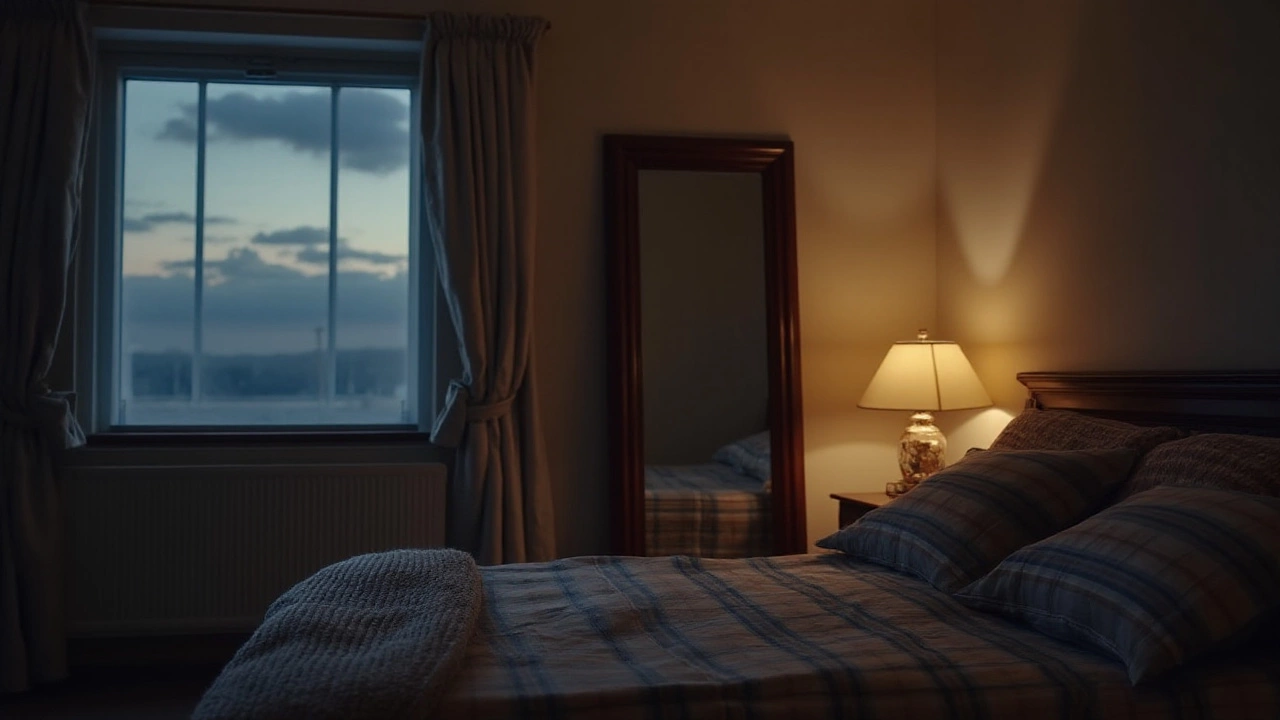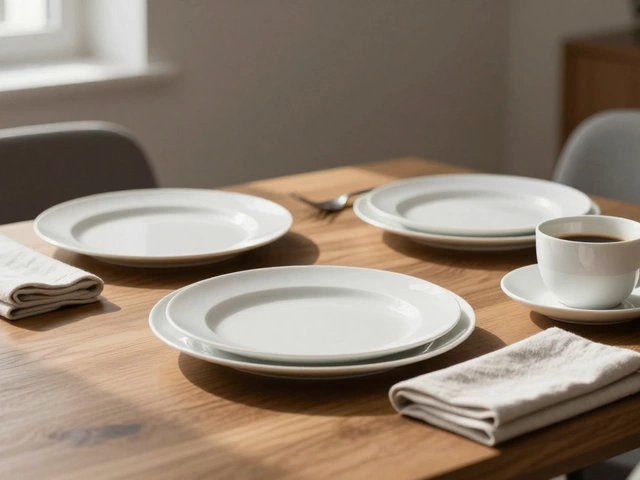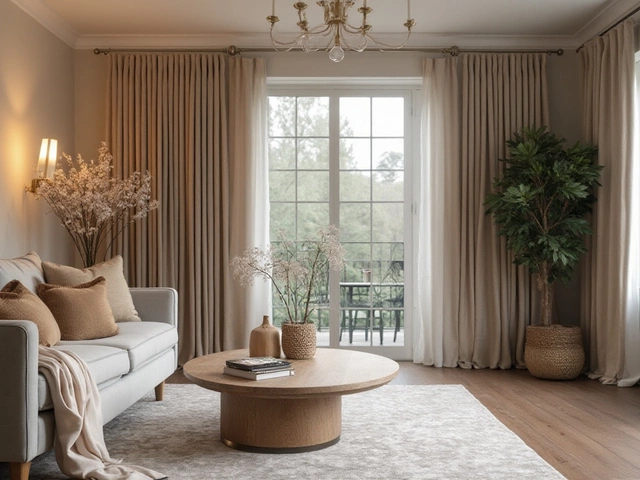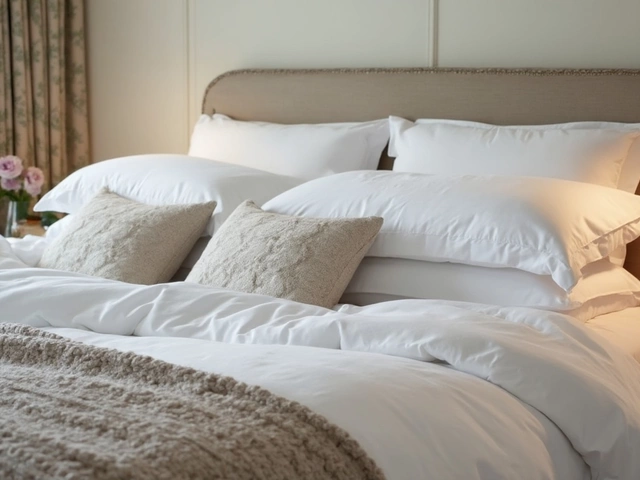Mirrors have a unique way of bringing depth, light, and charm into a home. But when it comes to bedrooms, their placement could be more strategic than aesthetic. Histories and cultural beliefs around mirrors date back centuries, with many traditions offering wisdom on their effects.
In more recent times, studies and observations have suggested psychological and physical effects tied to how and where we place mirrors. This article will explore these insights and provide tips on optimizing your home for peace and harmony.
- The History and Cultural Beliefs Around Mirrors
- Impact on Sleep and Psychological Factors
- Feng Shui Principles Involving Mirrors
- Best Practices for Mirror Placement
The History and Cultural Beliefs Around Mirrors
From ancient times, mirrors have fascinated human cultures across the globe. Their allure lay not just in their ability to reflect but in their mysterious and sometimes mystical connotations. In Roman culture, glass mirrors were considered luxurious items, a technology that only the wealthiest could afford. Meanwhile, ancient Chinese literature and folklore often wove narratives around mirrors, treating them as symbols of truth and wisdom. These polished surfaces held a special place across societies and were often imbued with spiritual significance.
The intriguing myths of broken mirrors are still prevalent in many cultures today. The Greeks used mirrors for divination, a practice known as catoptromancy, believing that gazing into a mirror could unveil one's destiny. The belief in seven years of bad luck upon breaking a mirror likely roots itself in this tradition. A mirror's reflection was considered a capture of one's soul, an idea that has had diverse interpretations across different societies. This led to practices such as covering mirrors during mourning in Jewish homes, to prevent the deceased's soul from becoming trapped.
In feng shui, an ancient Chinese art and science developed over 3,000 years ago, mirrors hold an intricate role. They are often used to expand spaces and reflect positive energy (Qi). However, they are like double-edged swords. Feng shui practitioners caution against placing them directly opposite the bed, as it may disrupt sleep by bouncing energy around the room. A compelling realization of how cultural beliefs so intricately weave into our day-to-day lives can be derived from these practices.
Across many cultures, mirrors also played a role in legends and horror stories. Consider the European folklore around mirrors as portals to other worlds, or the cautionary tales like that of Bloody Mary, where chanting in front of a mirror allegedly summons apparitions. Such narratives highlight the fascinating dualities mirrors have represented throughout history — seen as both tools for self-reflection and gateways to the unclear mysteries of the world.
Reflective surfaces have undeniably woven themselves into the fabric of human history, from tools of artistic and scientific discovery to revered objects that carry both superstitious and spiritual weight. Perhaps this complexity is what makes the mirror an object of fascination and caution. As we place mirrors in our homes today, embracing or eschewing these ancient beliefs offers a glimpse into how history influences modern interior design choices.
"Mirrors are the doorways through which the faces of ancestors look out on the asters and chrysanthemums." —Japanese Proverb
This age-old proverb encapsulates how mirrors are more than mere everyday objects. They are reflections of history, culture, and occasionally, mysteries that have captured the human imagination throughout the ages.
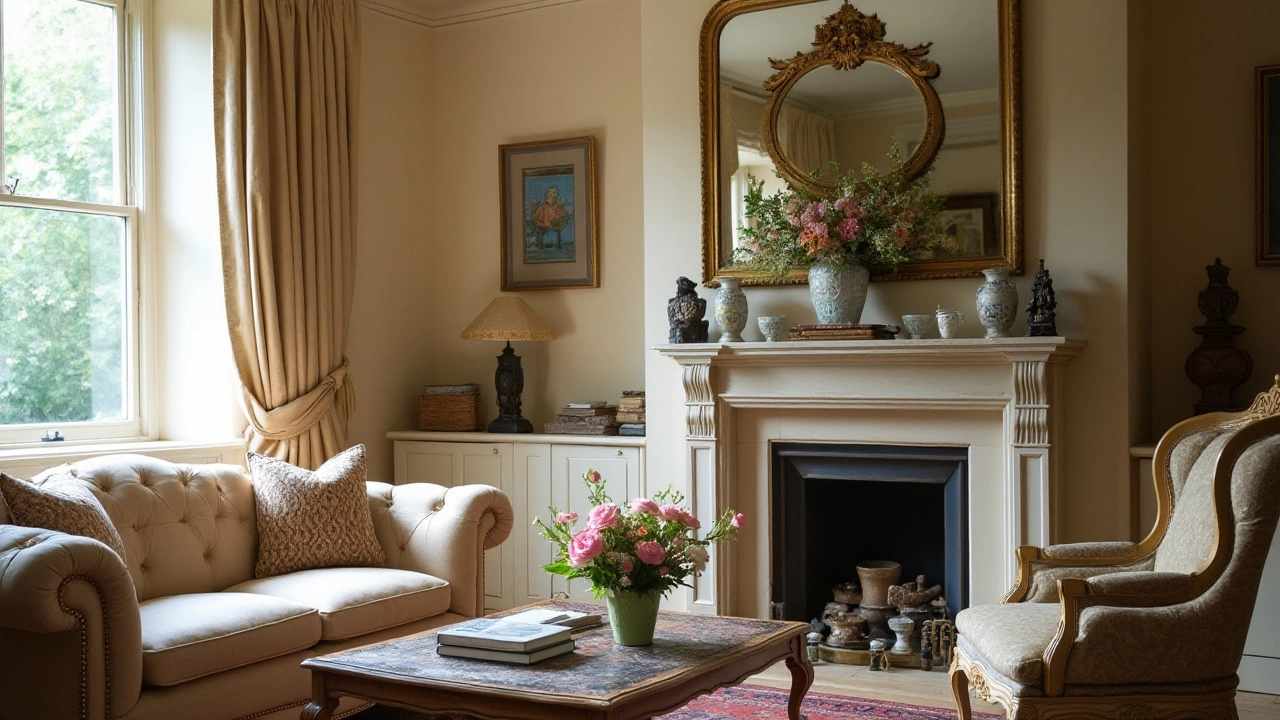
Impact on Sleep and Psychological Factors
It's fascinating to uncover how the presence of mirrors in a bedroom can affect one’s sleep and mental well-being. Many people notice that a mirror reflecting the bed directly seems to lead to restless nights. This is partly because mirrors are thought to amplify energy. When you’re trying to wind down for the night, extra energy is exactly what you don’t need. It can result in a heightened state, making it difficult to slip into the deep sleep cycles that are essential for restorative rest.
Psychologically, mirrors can play tricks on the mind, particularly in dim lighting. This can create unsettling illusions or feelings of being watched. This unconscious awareness can lead to a more restless state psychologically, as your mind, on some level, can remain alert due to perceived threats. In sleep psychology, a relaxed and unwound mind is crucial for sleep; disruptions can lead to longer sleep onset times and frequent nocturnal awakenings.
Indeed, sleep experts often advise against having any reflective surfaces in direct sight from the bed, particularly if you struggle with insomnia. Research indicates that stress and anxiety can manifest from feeling like you're not alone in the room. Dr. Mitchell, a leading psychologist specializing in sleep disorders, notes,
"Mirrors can reflect even minor movements, creating a sense of watching one's double, which the brain perceives differently than it perceives the rest of the room, thus processing it as potential movement."Such observations can contribute to sleep disturbances like interruptive awakenings or difficulty returning to sleep once awake.
Scientific Insights
The science behind light exposure and sleep also plays a pivotal role here. Mirrors can often create glare by reflecting any available light, especially if there are small electronic lights in the room like those from clocks or chargers. This light can disrupt melatonin production, the hormone responsible for regulating sleep-wake cycles. When our bodies sense light, they interpret it as a time to wake up, leading to inadequate sleep quality over time. Considering all these factors, it’s important for those sensitive to light or with existing sleep challenges to consider removing mirrors or ensuring they're covered during sleep hours.
Alternative Mirror Placement
If aesthetics or space requires a mirror in the bedroom, strategic placement can mitigate these adverse impacts. For example, positioning mirrors adjacent to the bed rather than directly in view can reduce disturbance. Alternatively, consider options such as closing closet doors that might have mirrors or using curtains or decorative covers at night. Implementing these changes not only enhances your sleep environment but also promotes a healthier living space overall.
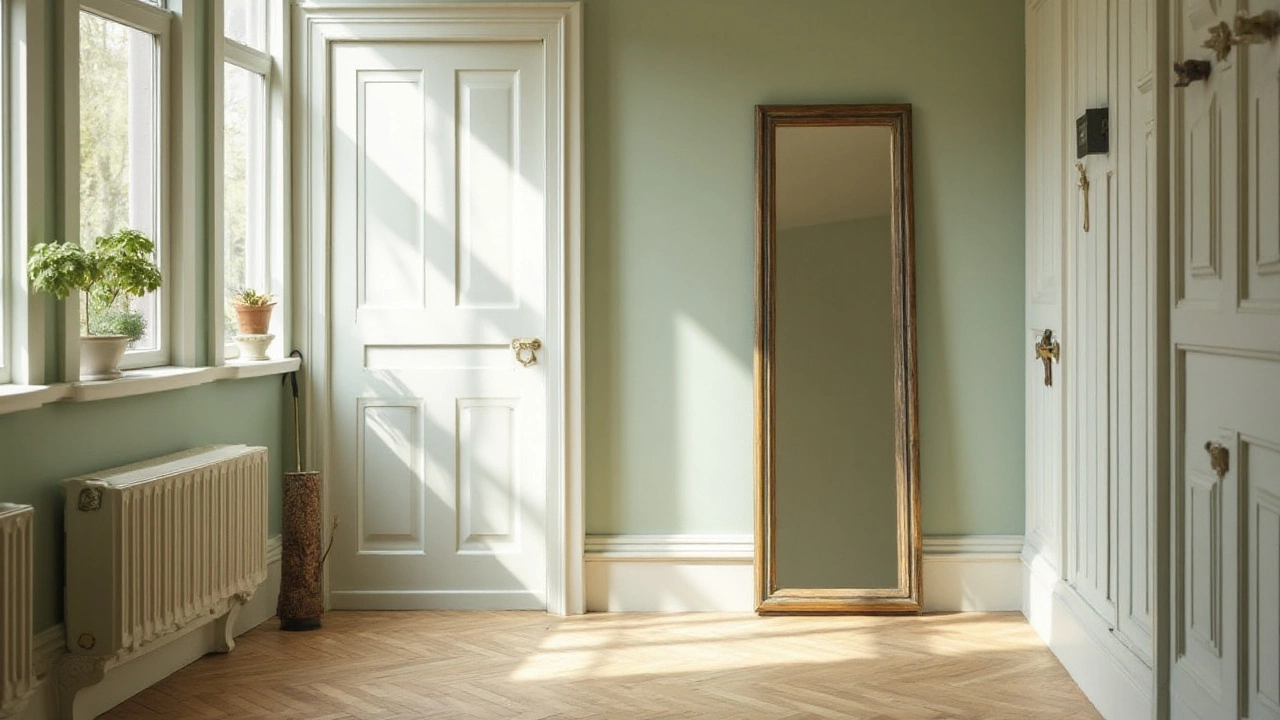
Feng Shui Principles Involving Mirrors
When exploring the concepts of feng shui, mirrors play a fascinating role. These reflective surfaces are considered 'the aspirin of feng shui' due to their ability to enhance and shift energy within a space. In bedrooms, however, their presence requires careful consideration to prevent any disharmony. According to traditional feng shui practices, mirrors should never face the bed. This belief is deeply rooted in the idea that mirrors amplify energy, which, though beneficial in some areas of the home, can disrupt the tranquility needed for restful sleep. The idea is that the active energy of mirrors can bounce around the room, causing restlessness and even relationship tensions.
Apart from the basics, mirrors in feng shui are also used to expand spaces. They have the power to reflect energy and enable positive chi to circulate, thus revitalizing the home environment. However, in a bedroom, mirrors should ideally only reflect appealing, peaceful scenes and avoid doubling up the bed, which could invite unwanted energy or even a third presence into a relationship. Expert feng shui practitioners also suggest covering mirrors at night which prevents any nighttime disturbances. For those who harbor doubts about these principles, it might be helpful to know that this practice aligns with older philosophical thoughts, promoting a healthy balance of energy while attempting to harmonize with natural cycles.
“Mirrors in feng shui are like aspirin. They’re used to cure various ailments of your home, but like any cure, correct usage is crucial.” – Lillian Too, renowned feng shui author.
According to feng shui, the positioning of mirrors opposite doors, particularly the main entrance, is favorable for reflection and enlargement of wealth and opportunity. Conversely, placing mirrors at the end of hallways or reflecting unsightly views within a bedroom can block incoming prosperity and lead to financial leaks. When considering mirror placement in a bedroom, avoiding mirrors directly opposite the main door is key, as this can unintentionally repel beneficial chi. When thoughtfully placed, mirrors can reflect an open landscape or a positive image, leading to symbolic doubling of abundance and grace into one's life.
As a broader principle, feng shui encourages living spaces to reflect personal aspirations and a peaceful state of being. By adhering to its principles with a little modern interpretative liberty, one can create a home environment that speaks to tranquility and prosperity. So, while mirrors add aesthetic value and depth, considering their emotional and spiritual impact can significantly enrich the bedroom experience.
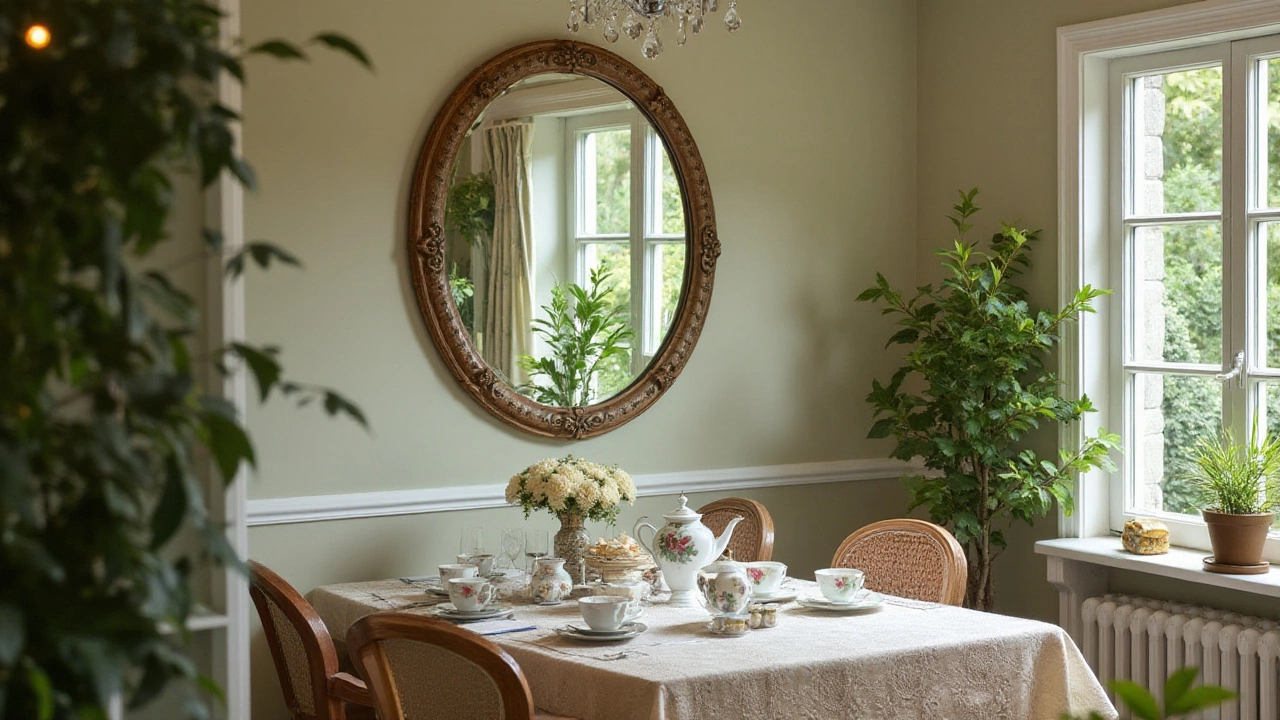
Best Practices for Mirror Placement
When you think about where to hang mirrors in your house, the bedroom might seem like an easy choice, but it's actually one where placement should be carefully considered. Interior designers and Feng Shui experts have long debated the ideal spots for mirrors, especially in rooms meant for rest like the bedroom. Placing a mirror directly opposite your bed is often discouraged because it might reflect light and other disturbances that could affect your sleep quality. The presence of a mirror in front of the bed can be energizing but not in the restful manner one might hope for.
Mirrors in other parts of the bedroom, however, can be beneficial. Try hanging mirrors on walls adjacent to rather than directly facing the bed. This configuration can still help with the circulation of positive chi, as per Feng Shui, without directly interrupting your sleep with reflections. A mirror opposite a window is another optimal placement as it brings more natural light into the room, creating a brighter atmosphere while not affecting your sleep patterns.
"Mirrors are like aspirin. When you use one, you know it's going to be a great day." - Jonathan Adler
For spaces intended for other purposes, like dressing or getting ready, having a mirror set up at an appropriate height not only serves a practical purpose but also amplifies the room’s light and space. Keeping a tiny mirror on your vanity or inside a closet door adds functionality without overwhelming the room’s aesthetic. Emphasizing the bedroom as a place of rest, experts advise against excessive use of mirrors that could lead to overstimulation.
An interesting consideration for mirror placement is related to the room's energy flow. Some Feng Shui principles suggest that mirrors should not be in line with the bedroom door as they might reflect positive energy outside rather than keeping it inside where it enhances well-being. If you're feeling stuck or overwhelmed with the room's layout, revisiting your mirror placements regarding doors and windows could be the trick to reviving the space’s energy. As our understanding of interior space evolves, these seemingly small changes in mirror placement can lead to significant outcomes.
| Placement | Effect |
|---|---|
| Opposite Window | Increases Natural Light |
| Adjacent to Bed | Enhances Positive Chi |
| Within Closet | Functional Without Distraction |
Understanding the different energies and effects associated with mirror placement can profoundly change a space. That’s why striking a balance and keeping functionality in mind makes all the difference. Departing slightly from traditional guidelines and adding your own flair could make your home not only more beautiful but more comfortable too.

